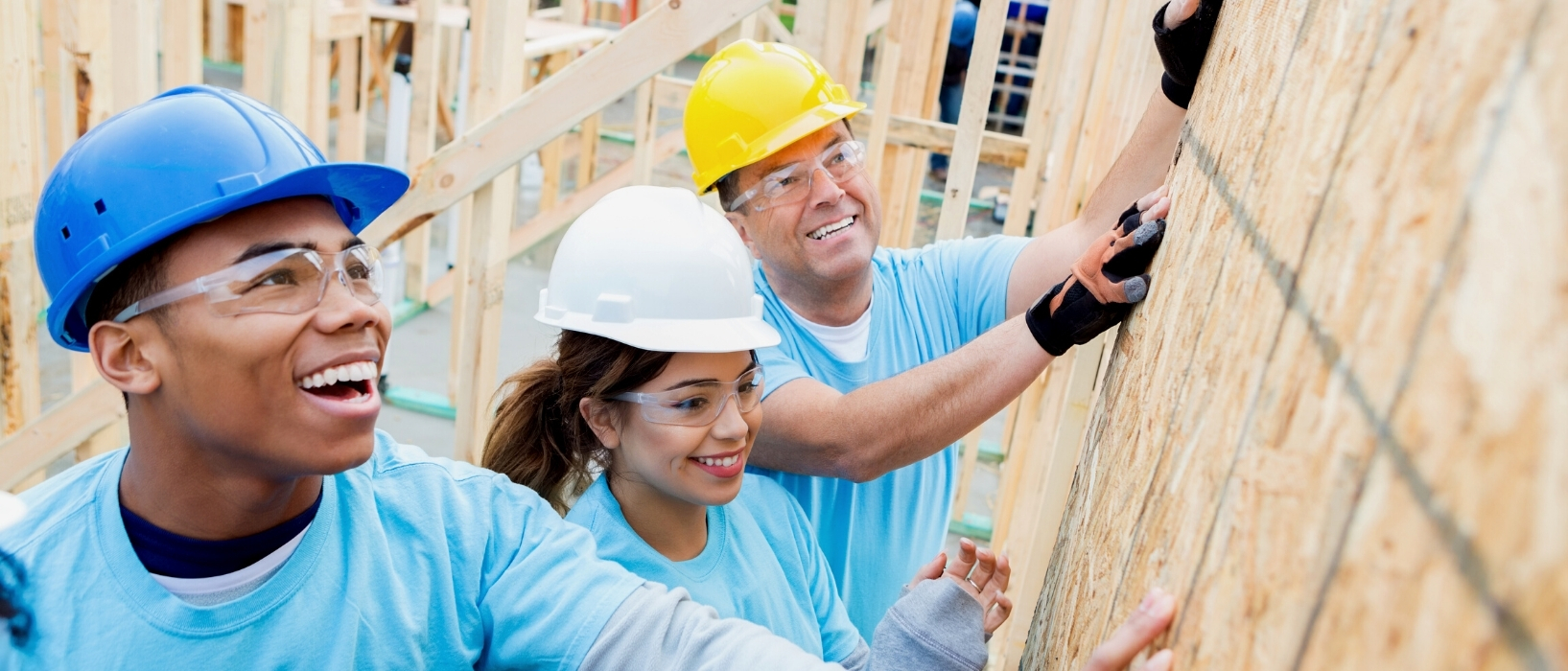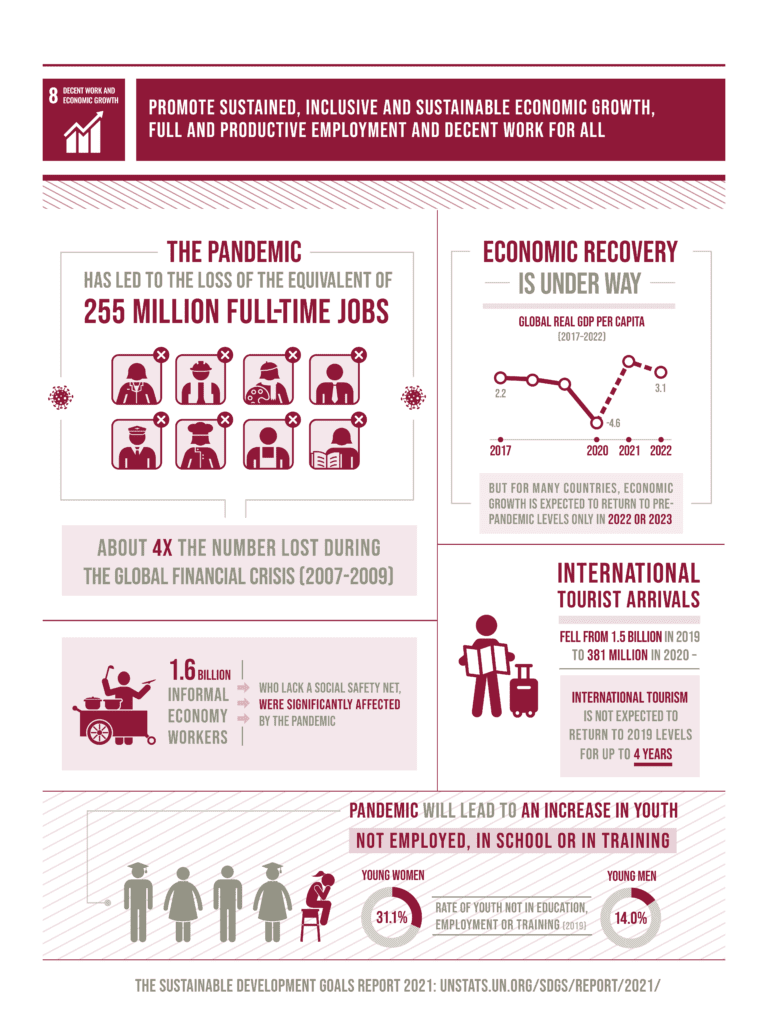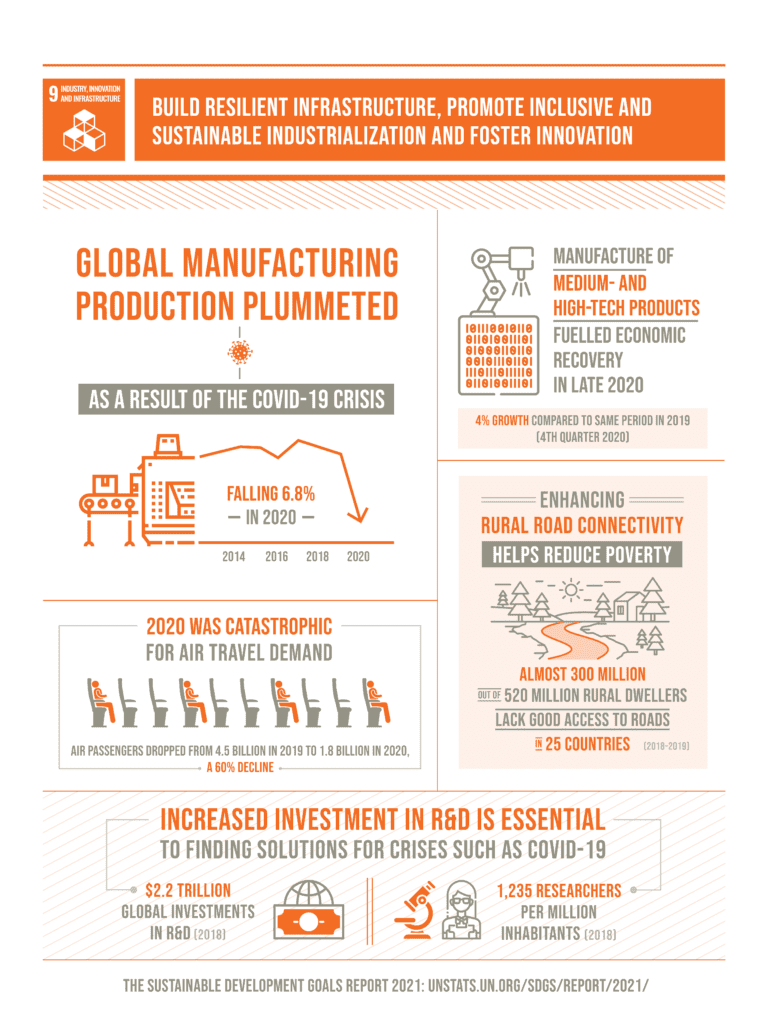
COP26 is almost upon us and our look into the United Nations Sustainable Development Goals continues.
This week, we delve into two closely related goals, to promote the sustainable growth of infrastructure and the economy.
Goal number 8 focuses specifically on inclusive and sustainable economic growth to create decent jobs, improve living standards, and drive progress around the world.
These targets, along with social development and climate action, heavily depend on the progress made towards goal 9; to build resilient infrastructure, promote inclusive and sustainable industrialisation, and to foster innovation.
Sadly, even before the Covid-19 pandemic there were declines in these areas.
Billions of people were still living in poverty, and 1 in 5 countries saw per-capita declines in 2020. In 2018, a fifth of the world’s youth were not in education, employment, or training, impacting their likelihood securing decent work in the future.
The same year saw global manufacturing slow in both developed and developing regions, largely due to increased trade and tariff barriers which constrained investment and future growth.
Then, the pandemic hit and all progress came to a complete halt.

The Covid-19 crisis was completely unprecedented, caused a historical recession, and hit the poorest and most vulnerable the hardest.
Now, it’s effects are still being felt through disruptions to industrial production, financial market volatility, and rising insecurity. This continues to derail the already slow growth of the world’s economy and infrastructure.
Global unemployment, for example, increased by 33 million in 2020, with the unemployment rate going from 1.1% to 6.5%.
Global working hours were also down by 8.8% compared to 2019, the equivalent of 225 million full-time jobs and around four times greater than the hours lost during the 2009 financial crisis.
Some sectors felt the impact of the pandemic more than others. This includes small-scale industries and manufacturing, in particular.
There were major setbacks in unemployment in this area, with an average decline of 5.6% and 2.5% in the second and third quarter of 2020, respectively, compared to the same figures in 2019.
Many people employed in these sectors had ‘informal jobs’, characterised by their lack of basic protections. Before the pandemic, these accounted for 60.2% of global employment, leaving 1.6 billion people unable to work due to lockdown measures.
Young people and women were also hit particularly hard by the crisis. Women experienced an employment loss of 5% in 2020 compared to 3.9% for men, and 8.7% of young people lost their jobs compared to 3.7% for all adults.
These numbers are shocking, but they still don’t take into account the further 81 million people who were unable to find or search for employment because of Covid-19.

The pandemic, however, has also highlighted the need for change and, in some cases, has even provided opportunities for it.
In developing countries, for example, it has given the time to introduce new ground-breaking technologies and the chance to foster industrialization.
The need for connectivity has also never been clearer. Thankfully, coverage of mobile and internet networks has increased twofold since 2015 and, despite the pandemic, almost 85% of the global population was covered by a 4G network at the end of 2020.
While the Covid-19 crises halted a lot of our progress towards Goal 8 and 9, their 2030 targets are still not unreachable.
At Play it Green we are doing our part by providing jobs for life in low-income areas through our tree planting partners, The Eden Reforestation Project.
This is because the farmers are paid not just to plant but also to care for and tend the trees. Our tree planting site is even currently on its second generation of farmers.
Sustainable growth needs to be a priority for governments and businesses around the globe, both to protect our planet from climate change and to improve the lives of everyone on it.